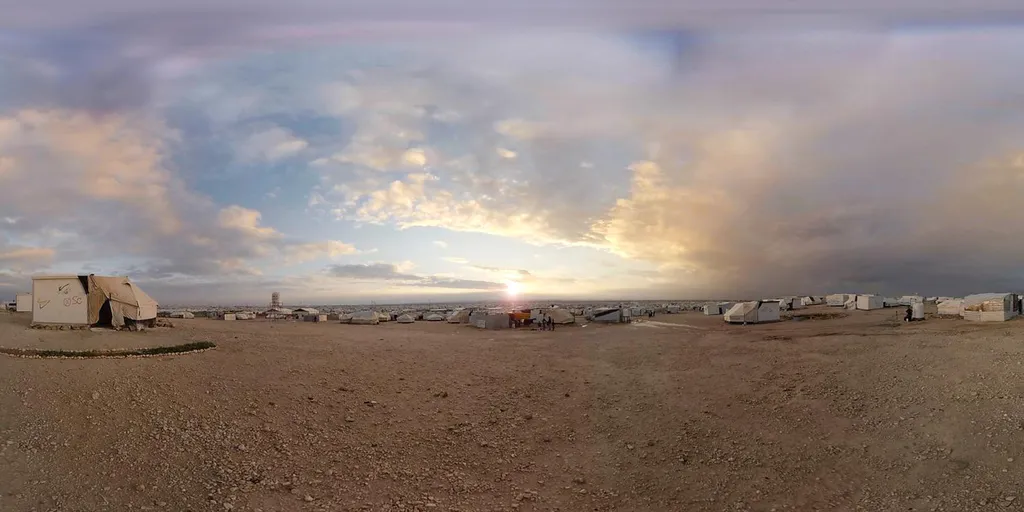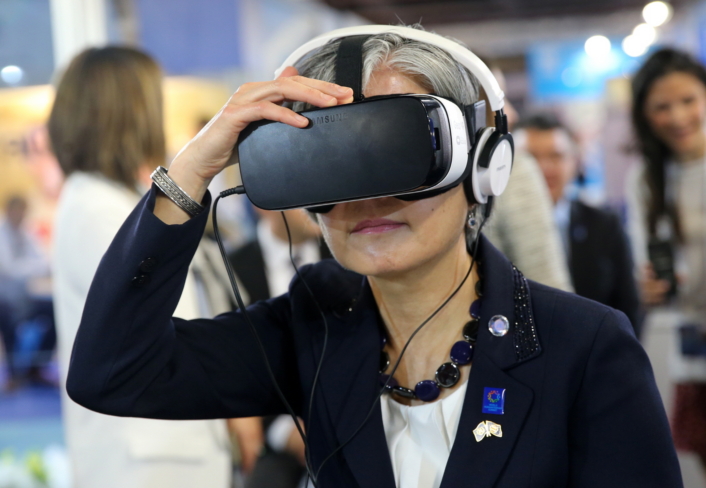The first ever UN World Humanitarian Summit was held in Istanbul, Turkey this week, and VR was there to help make an impact.
Gear VR co-creator Samsung Electronics brought several of its mobile VR HMDs along to the event, showcasing a total of nine VR films that were made in partnership with the UN itself. Each is a 360 degree experience that brings the viewer closer to the subject matter more than any 2D documentary could. These were on display at the summit’s very own VR Hub as well as the UN Women’s booth. Content on display covered a wide range of issues such as the Syrian refugee crisis and the topic of climate change.
As you’ve probably guessed, one of these was the immensely compelling Clouds Over Sidra from VRSE, which tells the story of everyday life for a 12 year old girl in the Za’atari camp in Jordan, having been forced to flee her home in Syria. The piece highlights the massive humanitarian crisis the world currently faces, creating a deep sense of empathy as you make eye contact with refugees and are forced to see their harsh circumstances. It’s easily one of the most powerful 360 degree videos to date and I encouraged you to check it out on the free VRSE app on iOS and Android.
A brand new film also debuted at the event. Home, directed by Charlotte Cans and David Ohana, follows the United Nations Secretary-General’s Mission for Humanity. Viewers travel from Jordan to Lebanon, the Democratic Republic of the Congo and South Sudan, taking again taking a look at the crisis surrounding refugees, of which there are more than 60 million in the world right now.
Elsewhere, summit visitors could also watch My Mother’s Wing, following a grieving mother that lost her two sons in the war in Gaza, Waves of Grace, which takes a look at the Ebola outbreak in Liberia, For my Son, a VR letter from father to son on fleeing Syria, and The Cross, which follows refugee’s journey across the Mediterranean sea.
Finally, there was Growing up Girl, showing day-to-day like of a 10 year old girl living between Kenya and Tanzania, Ready for 100, looking at the effects of climate change of Antarctic glaciers, and Crossing Tanganyika, exploring crimes to woman in the Lusenda Refugee Camp in the Democratic Republic of Congo.
Where VR is going in the entertainment industry is immensely exciting, but films such as these prove the tech has far more relevant uses to the wider world too. The UN has caught on early to the powerful empathy that 360 filmmaking can create and is using VR for good. That’s great to hear.































